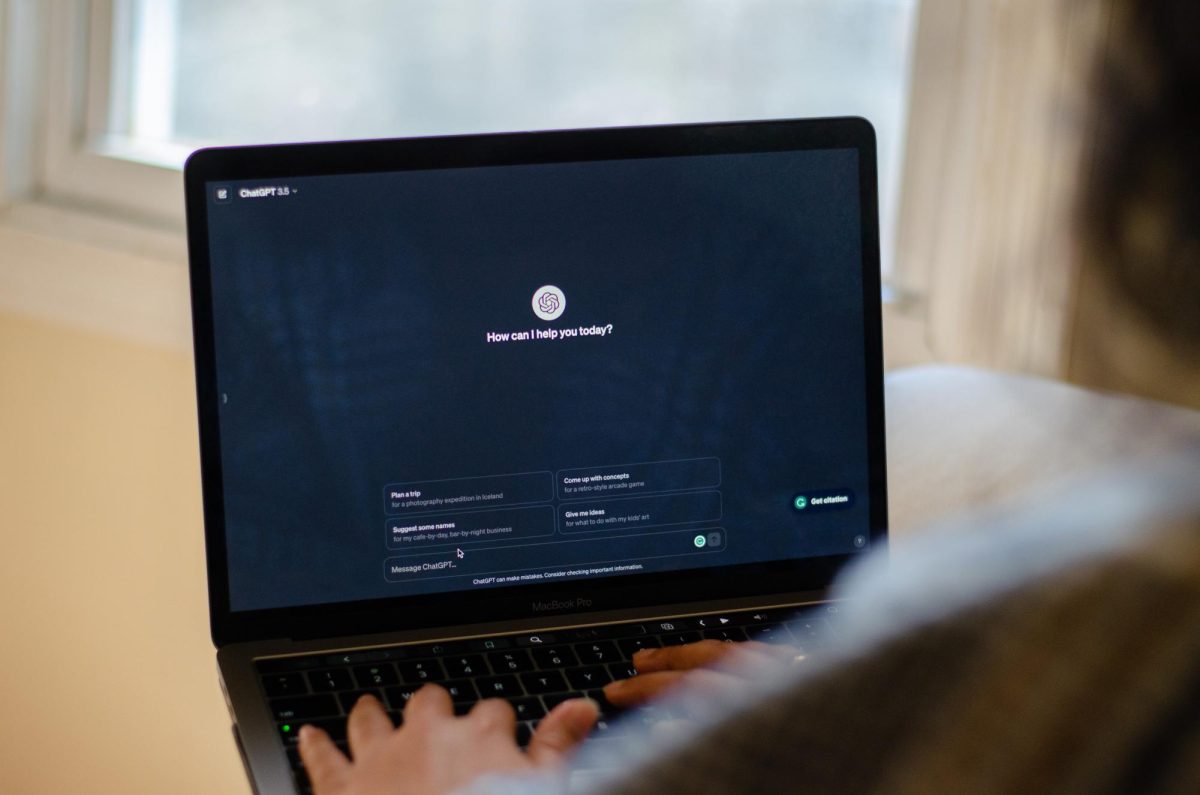Throughout recorded history, mankind has created tools: hammers, steam engines, phones. Life is innovation; innovation that tends toward a common trend of inception, excitement and abuse, even today. The current scapegoat assigned blame within modern academia has entered the realm of abuse: Artificial Intelligence. Who is really at fault—the student for its misuse, or academia for its inability to adapt to a new age?
Released Nov. 30, 2022, ChatGPT gained a lot of attention by providing intelligent responses to any query. Immediately, the community recognized its potential; unlike any AI released before, ChatGPT’s ability to “create” was unparalleled, and as such, the products it provided became easy to incorporate in any field or daily endeavor.
ChatGPT soon became a part of people’s daily history. Any person unaware of ChatGPT must be an avid avoider of ease and simplicity. ChatGPT can help faculty with creating syllabuses, generating lectures, grading, providing detailed feedback, generating emails and assisting in any conceivable pursuit when used with enough creativity. The story is much the same amongst students: ChatGPT can provide help with homework, tutoring, brainstorming, proofreading, general guidance and organization. Limited only by one’s imagination, ChatGPT’s uses are innumerable. With the ease it brings to daily life, how could we not be excited at its introduction?
But alas, the hatchet does not care to what end it serves.
It is inevitable that all good things must come to an end. As quickly as ChatGPT entered academia’s orbit, its use soon went up in flames in a magnificently melodramatic conflagration of academic bureaucracy. We, the students, determined how it could make tasks that were once a nuisance entirely pointless. Essays became a thing of yesterday—why type out 500 words? Why read a chapter to answer a question?
With simple prompting, a lazy student can become a top tier academic—on paper, at least. No longer are the days where we spend hours staring at a question trying to figure out where to start. No longer do we need to scour textbooks in search of an answer. No longer do we need to stress over a complicated equation. ChatGPT makes all of these tasks menial, providing solutions, work and even custom responses. We have truly entered a new era of learning.
Let us draw an analogy: students against teachers. Both sides were given the same resources, the same limitation, the same understanding. Yet, one side has found infinite applications to make their struggle easier. What is the response to this development? Denial. Rather than applying AI and finding ways to incorporate it into academia, it has been blacklisted by professors. To deny ChatGPT is to deny students the opportunity to adapt to a coming age, an age of speed and efficiency, an age of automation.
Life is innovation, and innovation is an eternal progression. Why take the stairs when you can take the elevator; why wait in line when you can order ahead of time? Ease has been the striving force for human advancement. The discovery of fire sparked the question, “how else can I make my life easier?” and so we have driven progress, finding ways to make our daily life easier, our society more complex.
Ask yourself this: Are we to blame for the advancements of technology? Are we to be reprimanded for not indulging in the busy work we have been fed our entire lives? Or is it time for a much-needed rework—have we, as students, forced academia to finally rework the system which they have relied on since the inception of learning? Is it time to get rid of pointless tasks, random worksheets and mindless PowerPoints? AI will remain long after we have left school, as it establishes itself more and more in education, corporations and the media. We are amidst a society in which AI will become the precedent. To deny us its use is to deny us the ability to swim in a modern world; shouldn’t academia work with, and not against, the tides of progress?





















































